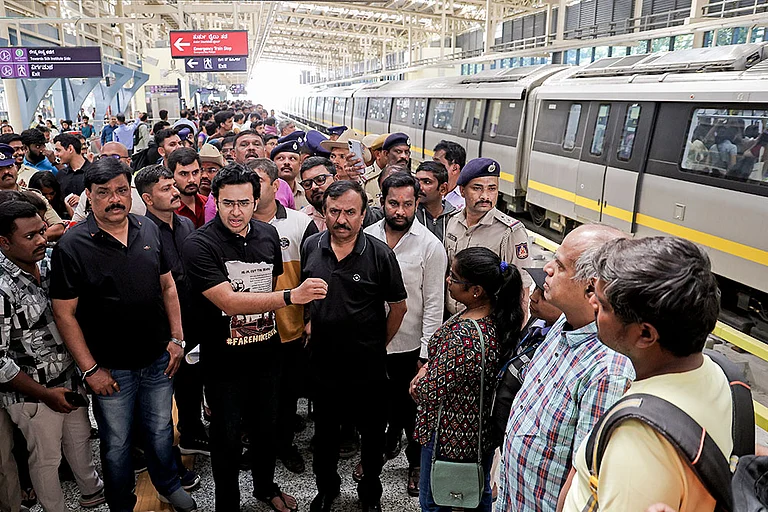A dispute on a tactical line that begun in 1978, when the USSR seemed more permanent than God, that is if He existed, and when the disputants were newbies in the hammer-and-sickle club, is bizarre by general standards, but not for the CPI(M). The differences between Prakash Karat, general secretary, and Sitaram Yechury, politburo member and a regular on Delhi’s party circuit, are on whether it was a good idea to decide, at a 1978 party meet, to form governments in states in opposition to the Congress, the then lion of the political forest. If it was a bad plan, as Yechury now says, why didn’t he try to take the party back to the jungles of his native Telangana and make friends with his ideological cousins of the Maoist faith? And if Karat never liked supporting a government with the Congress in it, shouldn’t he have revolted against supporting the Congress-led UPA as soon as he got elected as party chief?
The problem with communist parties, as many scholars have noted, is their organisation—crafted not by Karl Marx but his Russian followers like Lenin and Stalin, neither of whom had Marx’s vision. Inspired by the duo, Indian communists chose a party structure impervious to new ideas. Its ‘democratic centralism’ is democratic only to the extent that it has an internal voting system, but it is controlled by the ruling cabal with an iron fist. And like all parties whose leaders are chosen through a sham election, the CPI(M) is cut off from the world outside. It prides itself in its ‘class consciousness’ but its supposed class allies have often changed identity. In West Bengal, CPI(M)’s citadel, small farmers—its main constituency—underwent fundamental shifts after economic liberalisation, with opportunities beyond the farmland opening up. They shifted allegiance after the 2006 assembly polls, resulting in a slide in vote-share from 79 per cent to 21 per cent.
Communists learn very little from defeats, except perhaps China, which carefully observed the downfall of the USSR and made course correction. It brought in what is jocularly called ‘market Leninism’. In India, trade unions still attract communists, even though the composition of workplaces is changing. Besides, the IT sector has created a new skill and aspiration-driven working class which looks at colleagues as competitors, not comrades. The rising middle-class individualism has pushed the red flag even deeper into the museum.
If only the ideologues in a building near Delhi’s Gol Market, named after A.K. Gopalan, were less rigid about rules, they could occupy the entire anti-establishment space. Communists are nowhere in today’s battlefronts, be it against corruption, communalism and inequality in education, health and jobs. Worse, the intellectual class that once swore by them is now absent.
Having shrunk to a mere three per cent in the last Lok Sabha elections, if Marxists expect to be reckoned with in electoral politics again, it will be by piggybacking on caste or community groups. To change the world, they must change themselves.
Calcutta-based commentator Sumit Mitra writes for Desh; E-mail your columnist: onlysumit [AT] gmail [DOT] com


























